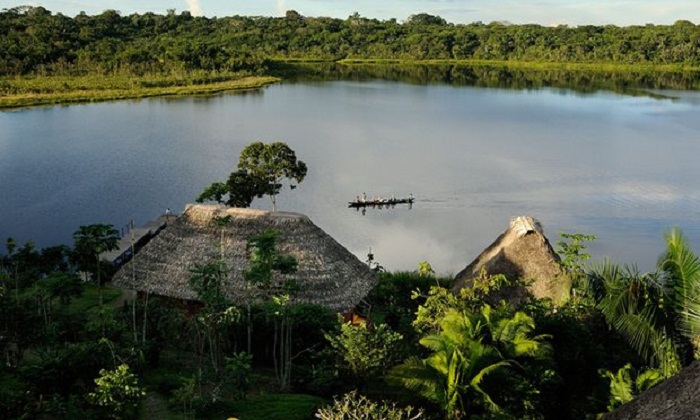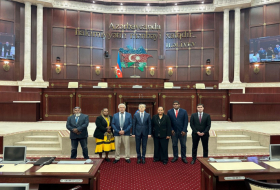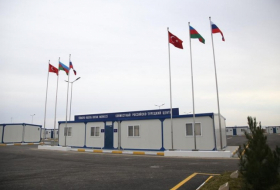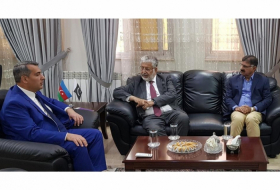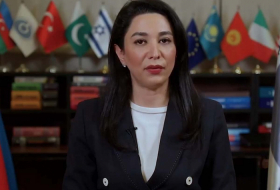Ecologists, environmentalists and political groups in Ecuador and elsewhere condemned president Rafael Correa when in August 2013 he scrapped a pioneering conservation plan to leave oil under the Ishpingo-Tambococha-Tiputini (ITT) area of the park, in return for $3.6bn (3bn) compensation.
Nobel prizewinners, Hollywood stars such as Leonardo DiCaprio, UN general secretary Ban Ki-moon and conservationists had backed the ambitious plan when Correa first proposed it in 2007, but when after six years only $200m had been pledged by the international community, Correa said he had no option but to allow drilling to pay for poverty relief.
Critics feared that oil would destroy Yasuní in the same way it had led to widespread deforestation and pollution across much of Ecuador and the western Amazon. Not only could oil workings fatally contaminate water and soils, but new oil roads would be constructed deep into the forest allowing hunting, deforestation and colonisation by people seeking land.
In addition, said critics, it was likely that an army of oil workers would clash with the two semi-nomadic tribes of Waorani Indians known to be living within the national park.
But in correspondence with the Guardian, the Ecuadorean government has claimed that a combination of the latest drilling technology and strict conditions on how the state oil company Petroecuador operates in the park has shown that oil exploitation is possible without environmental damage.
“Gas flaring is not allowed, which completely eliminates the negative effects of burning liquefied petroleum gas, CO2 emissions and greenhouse gases to the atmosphere. The extraction technology of horizontal drilling allows multiple wells to be tapped from the same drill site, significantly reducing the amount of vegetation that must be cut down,” said a spokesman.
“Colonisation [by people] of the area is banned by the environmental license so the impact of construction and use of access paths is rigorously controlled,” he said.
According to the government, three oil pipelines crossing the Yasuní national park have been buried and the areas re-vegetated. “The access path for transport is four meters wide. It has tree canopy bridges to allow wildlife to cross above and has been designed with underground passages to allow the natural passage of water, aquatic life and land animals. The path is not paved in order to prevent soil contamination. Once the oil exploitation project is finished the route will be reforested naturally,” the spokesman said.
“The construction specifically avoids any interference in biologically sensitive areas such as old trees, salt lakes and nesting areas of sensitive species. Any evidence of colonisation by others represents a failure by the operator and therefore a risk of suspension,” he added.
Critics have responded that it is too early to say that the oil exploitation will not cause harm. “The government has not allowed any independent monitoring by scientists, journalists, or civil society. The well site is militarised, and aerial flyovers and images are prohibited,” Kevin Koenig, Ecuador programme director at Amazon Watch, told environment news site Mongabay.
Adrian Forsyth, director of the Washington-based Amazon Conservation Association, said it was only a matter of time before damage occurred. “It is well known that building roads into the interior of a national park comprised of rainforest with an abundance of rivers will inevitably lead to colonisation, deforestation, game depletion and continuing degradation of the very things national parks are designed to protect.”
But the government claims it has learned lessons from the rampant destruction that took place when oil was discovered and exploited by US companies in Ecuador in the 1950s.
“Thanks to the Yasuní initiative, the awareness and commitment of the Ecuadorian population to the care of the Amazon, and the environment in general, has grown enormously. As a result, the Amazon in Ecuador is better cared for than ever before,” said the government spokesman.
“The alternative of having children without schools, without hospitals, without health infrastructure, without clean water, is not an alternative. No nation should allow its children to live without the basics for human dignity. If that is not an alternative for the UK, it is not for Ecuador either,” he said.
Vice president, Jorge Glas, on a recent visit to the drilling site said: “This is the start of a new era for Ecuadorean oil. In this new era, first comes care for the environment and second responsibility for the communities and the economy, for the Ecuadorean people.”
More about:








